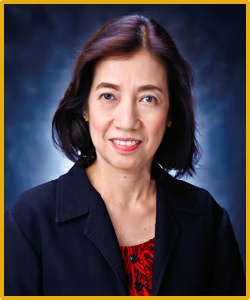 UNO-R
USJ-R
SSC-R Manila
Seal
SSCR Hymn
History
RGA
VMVO
Administration
Home
Baste TV
UNO-R
USJ-R
SSC-R Manila
Seal
SSCR Hymn
History
RGA
VMVO
Administration
Home
Baste TV
The course deals with theories and
principles of organization and management and their application in business and
industry. It likewise stresses the importance of an organization's global industry
taking into account the global business environment and competitive pressures.
The course provides the students
with various mathematical models for business decision-making. It enhances the
student's ability to make long-range plans and develop broad strategies.
It also aids in the day-to-day operation of any business, public or private.
The course introduces the students to
the steps necessary to analyze a problem in information technology and identify and
define the computing requirements appropriate to its solution, with a focus on how
to design, implement and evaluate a computer-based system, process, components or
program to meet desired results. Students will learn to analyze local and global
impact of computing on individuals, organization and society.
The course deals with the basic
principles of managerial economics as it integrates economic theories and other
disciplines. The course concentrates on the application of the tools of economic
analysis for optimal decision-making in both private and public sectors.
Topics relating the planning and control
functions if manufacturing systems are presented. These topics include management of
the production system, strategies of the product design and process selection,
design of production systems, plant location, shop floor control, purchasing,
quality management and productivity improvement.
The course focuses on developing
competitive advantage by creating customer value. An understanding of customer
relationships and their strategic implications is developed within the context of
competitive and value-chain relationship. Emphasis is placed on developing and
understanding of the analytical and managerial tools for creating competitive
advantage and the similarities and differences in domestic and global marketing.
The course deals with the review
of the basic accounting concepts from which the principles of accounting are derived.
The concepts will serve as the foundation fr the interpretation of the financial
statements. The major part of the course deals with the process of providing
information to an organization's management to assist them in the effective and
efficient planning, implementing and control of the organization's activities.
It covers both theories and practical applications.
The course focuses on the
function of management related with the procurement, allocation and effective
and efficient utilization of funds necessary to meet the predetermined objectives
of the firm. Special topics related with the current trends affecting the firm
will also be discussed in the course.
The course deals with strategies,
methods and other group processes focusing on the whole culture of an organization
in order to bring about planned change. Effective change will be incorporated in
the beliefs, attitudes, structures and practices so that the organization can better
adapt to the fast pace of technological and environmental changes.
The course aims to teach the approach
that entrepreneurs use in identifying opportunity and creating new ventures;
the analytic skills that are necessary for dealing with recurring issues involved
in starting, growing and harnessing the value of new ventures.
The course provides a basic
understanding of what research can do and cannot accomplish and show how to
effectively use research tools in management decision-making. Students learn
how managers develop a research project, when to commission one, and how to
interpret and present6 quantitative and qualitative research results. Students
will learn about problem formulation, determining research questions, sample
theory and data collection methods.
The course emphasizes the Caritas
et Scientia values of a Recollect student. It will make the students imbibe the
Recollect Graduate Attributes.
The course deals with the basic
concepts, principles, frameworks and practices of social responsibility and good
governance. It analyzes the business framework that guides social responsibility
and good governance practice. It combines theory with field experience aimed at
inspiring young leaders to become responsible citizens.
The course focuses on the definition
and implementation of business strategy for global operations. It explores the
global competitive, socio-cultural and political environment and equip managers
with a framework to formulate strategies in the global marketplace.
The course aims to build an
executive leadership style that creates trust, sets a clear vision and guides
the entire team of a company towards greater performance and profit. It also aims
to develop an executive leadership style that adapts
to the persons and situations.
The course introduces the students
to the ongoing process of identifying and articulating marketing requirements
that define a product's feature. It guides the students in developing, creating
and marketing new products or services to benefit customers.
The course will cover modern products
and financial decision-making and management in a market-oriented multi-national
framework. Topics include capital structure decision, risk management involving
financial derivatives and currency hedging, cross-border investment decisions,
subsidiary management and cross-border merger and acquisitions.
The course covers, with a focus on both
theory and empirics, advanced topics in International Trade. It explores the
theoretical foundation and empirical realities to international trade flows,
commercial policies (tariffs, quotas, etc.) and international finance.
It also emphasizes the welfare implications of international trade and commercial
policies and links these to discussion of disputes over international trade agreement.
The international finance portion of the course covers the foreign exchange market
and balance of payments analysis.







